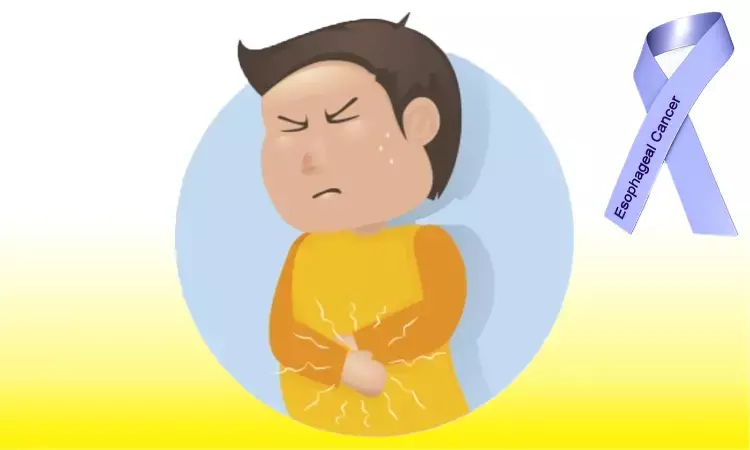- Home
- Medical news & Guidelines
- Anesthesiology
- Cardiology and CTVS
- Critical Care
- Dentistry
- Dermatology
- Diabetes and Endocrinology
- ENT
- Gastroenterology
- Medicine
- Nephrology
- Neurology
- Obstretics-Gynaecology
- Oncology
- Ophthalmology
- Orthopaedics
- Pediatrics-Neonatology
- Psychiatry
- Pulmonology
- Radiology
- Surgery
- Urology
- Laboratory Medicine
- Diet
- Nursing
- Paramedical
- Physiotherapy
- Health news
- Fact Check
- Bone Health Fact Check
- Brain Health Fact Check
- Cancer Related Fact Check
- Child Care Fact Check
- Dental and oral health fact check
- Diabetes and metabolic health fact check
- Diet and Nutrition Fact Check
- Eye and ENT Care Fact Check
- Fitness fact check
- Gut health fact check
- Heart health fact check
- Kidney health fact check
- Medical education fact check
- Men's health fact check
- Respiratory fact check
- Skin and hair care fact check
- Vaccine and Immunization fact check
- Women's health fact check
- AYUSH
- State News
- Andaman and Nicobar Islands
- Andhra Pradesh
- Arunachal Pradesh
- Assam
- Bihar
- Chandigarh
- Chattisgarh
- Dadra and Nagar Haveli
- Daman and Diu
- Delhi
- Goa
- Gujarat
- Haryana
- Himachal Pradesh
- Jammu & Kashmir
- Jharkhand
- Karnataka
- Kerala
- Ladakh
- Lakshadweep
- Madhya Pradesh
- Maharashtra
- Manipur
- Meghalaya
- Mizoram
- Nagaland
- Odisha
- Puducherry
- Punjab
- Rajasthan
- Sikkim
- Tamil Nadu
- Telangana
- Tripura
- Uttar Pradesh
- Uttrakhand
- West Bengal
- Medical Education
- Industry
Enhanced-image endoscopy improves detection of upper GI cancers, finds study

Linked color imaging (LCI) is a new image-enhanced endoscopy technique that allows users to recognize slight differences in mucosal color.
The researchers conducted a study to compare the performance of LCI with white light imaging (WLI) in detecting neoplastic lesions in the upper gastrointestinal tract.
They found in the new study that Enhanced-image endoscopy more effective than conventional imaging for detecting upper GI cancers.
Linked color imaging (LCI), a new image-enhanced endoscopy technique that allows users to recognize slight differences in mucosal color, is more effective than conventional white light imaging (WLI) for detecting tumors in the upper gastrointestinal tract. Findings from a randomized controlled trial are published in Annals of Internal Medicine.
The primary goal of upper GI endoscopic examination is to detect neoplastic lesions in the pharynx, esophagus, and stomach. However, early-stage lesions may be overlooked by conventional white light endoscopy.
Researchers from National Hospital Organization Hakodate National Hospital, Hakodate, Hokkaido, Japan identified 1,502 patients with known previous or current cancer of the GI tract to compare the performance of LCI with WLI in detecting neoplastic lesions in the upper GI tract. The patients were randomly assigned to WLI followed by LCI examination (WLI group) or LCI followed by WLI examination (LCI group), with the patients just about evenly divided into each group. The researchers found that the doctors using LCI diagnosed 1.67 more neoplastic lesions in the first examination than they did with WLI. The proportion of patients with overlooked neoplasms was also lower in the LCI group than in the WLI group. The authors conclude that LCI is more effective than WLI for detecting neoplastic lesions in the pharynx, esophagus, and stomach. Their results suggest that many neoplastic lesions are being overlooked by conventional white light endoscopy performed in routine clinical practice. They say to reduce the rate of overlooking neoplasms, LCI should ideally be applied in clinical practice.
For further reference log on to:
https://www.acpjournals.org/doi/10.7326/M19-2561
Dr Kamal Kant Kohli-MBBS, DTCD- a chest specialist with more than 30 years of practice and a flair for writing clinical articles, Dr Kamal Kant Kohli joined Medical Dialogues as a Chief Editor of Medical News. Besides writing articles, as an editor, he proofreads and verifies all the medical content published on Medical Dialogues including those coming from journals, studies,medical conferences,guidelines etc. Email: drkohli@medicaldialogues.in. Contact no. 011-43720751


